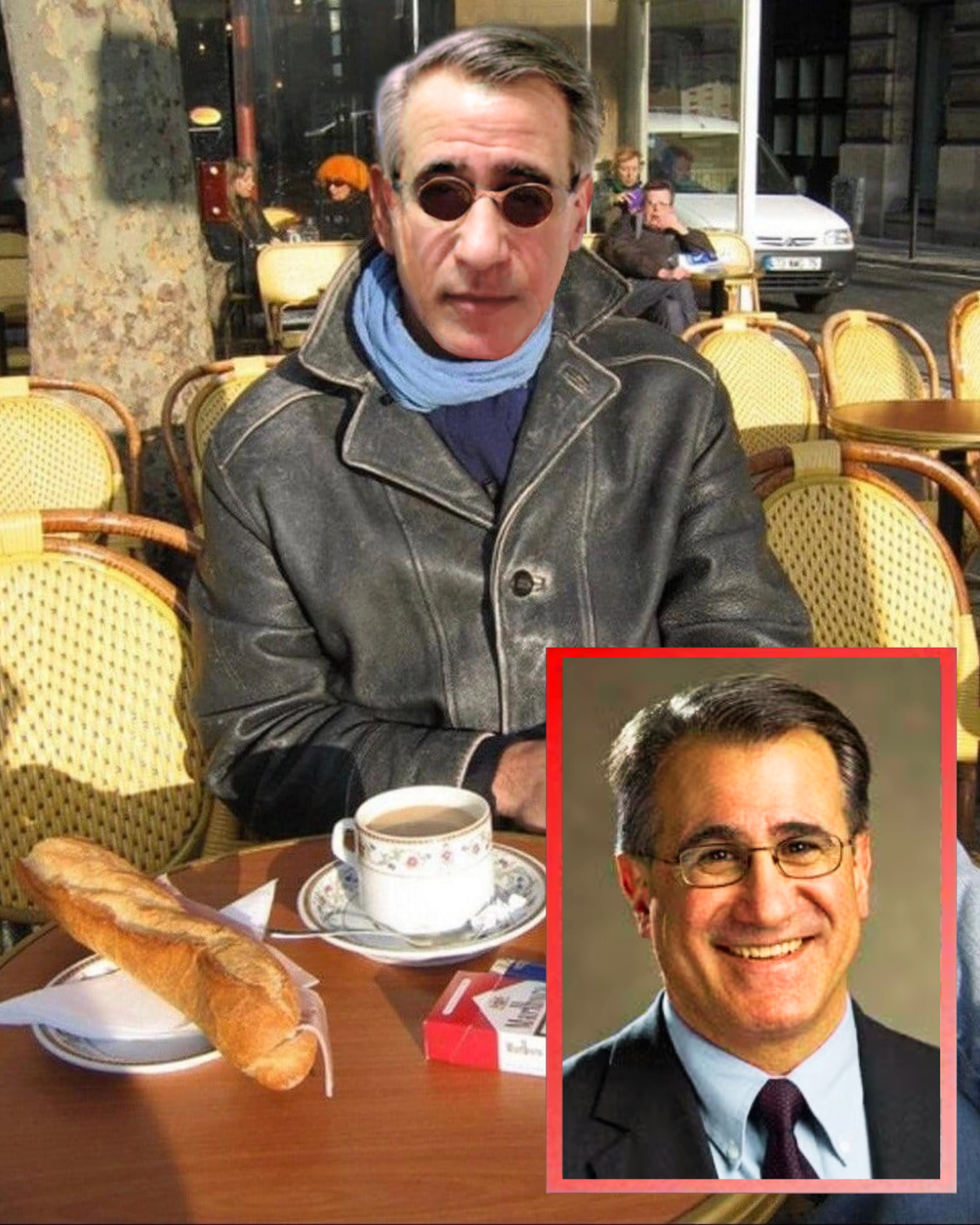Graphic by Mary-Amma Blankson
It’s 10:37 a.m. on the benches in the Davis Square plaza. Tony Monaco stirs his espresso — takeout from Diesel since we couldn’t get a spot inside. “I used to withhold kids’ financial aid faster than this coffee cools,” he says, half to himself. He glances up to see the joey drive by, and smiles faintly.
I had asked to meet him today to see what happens when a university president steps off the podium and into the real world, when the man who once led Tufts like it was a caravan of Beatles groupies—and he Paul McCartney—finally faces the silence after the encore. This was the first time I had seen the former president of Tufts University since he inaugurated his successor. He was different. Older, calmer, cooler, sporting shades and a leather jacket.
At first, Monaco struggled with the transition. The first few months after leaving Ballou were “dark,” he admits. He spent mornings refreshing the Tufts Daily homepage, hoping to see his name in the headlines. “You go from ignoring student pleas to divest from Israel to eating lunch in silence,” he says. “It’s an adjustment.”
For a while he experimented, hosting intimate “leadership jam sessions” in his basement. “We’d sit in a circle taking turns rewriting the mission statement,” recalls one attendee. “Sometimes he’d just hum for twenty minutes straight. It was transcendent.”
Monaco shrugs when I ask about rumors of a comeback. “People think I was just the president of a university,” he tells me, lowering his sunglasses. “But really, I was fronting a band called Tufts. The students were my rhythm section.”
“It’s not about returning to Ballou,” he explained. “It’s about recapturing that energy, that feeling of 2018 when the budget was actually balanced.” He paused, smiling. “I’m not saying Tufts was my Sgt. Pepper’s” he laughed, “but yeah, it kind of was.”
These days, Monaco lives between leading ashtanga yoga workshops and occasionally lecturing at leadership retreats. He’s still got that twinkle in his eye, the one that once charmed a thousand undergraduates and terrified the board of trustees.
“I’m exploring,” he says. “You spend years building an institution, and then you realize: the real institution was inside you all along.


